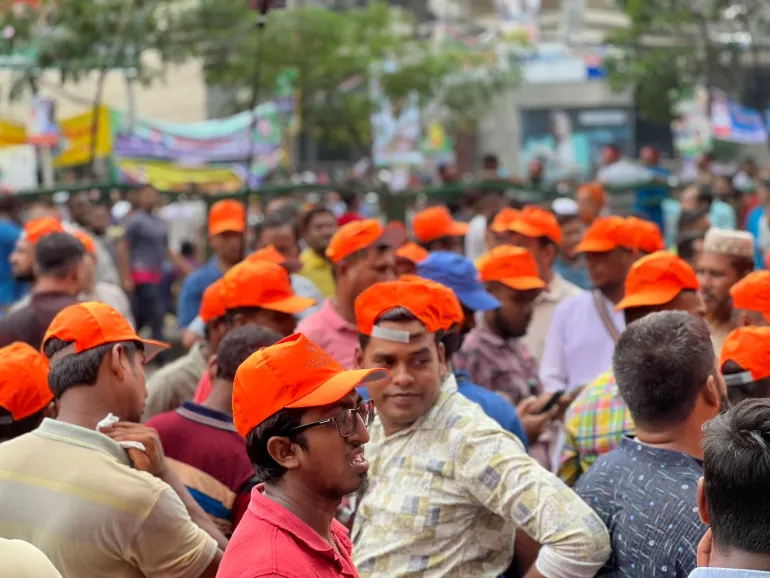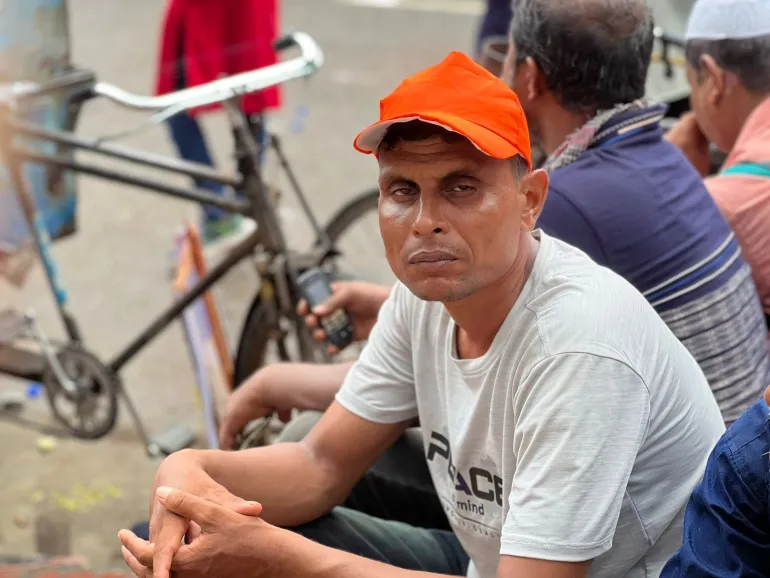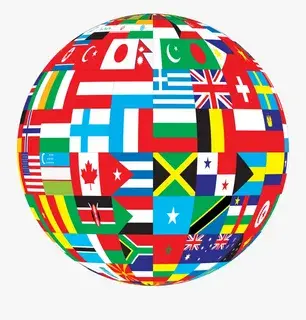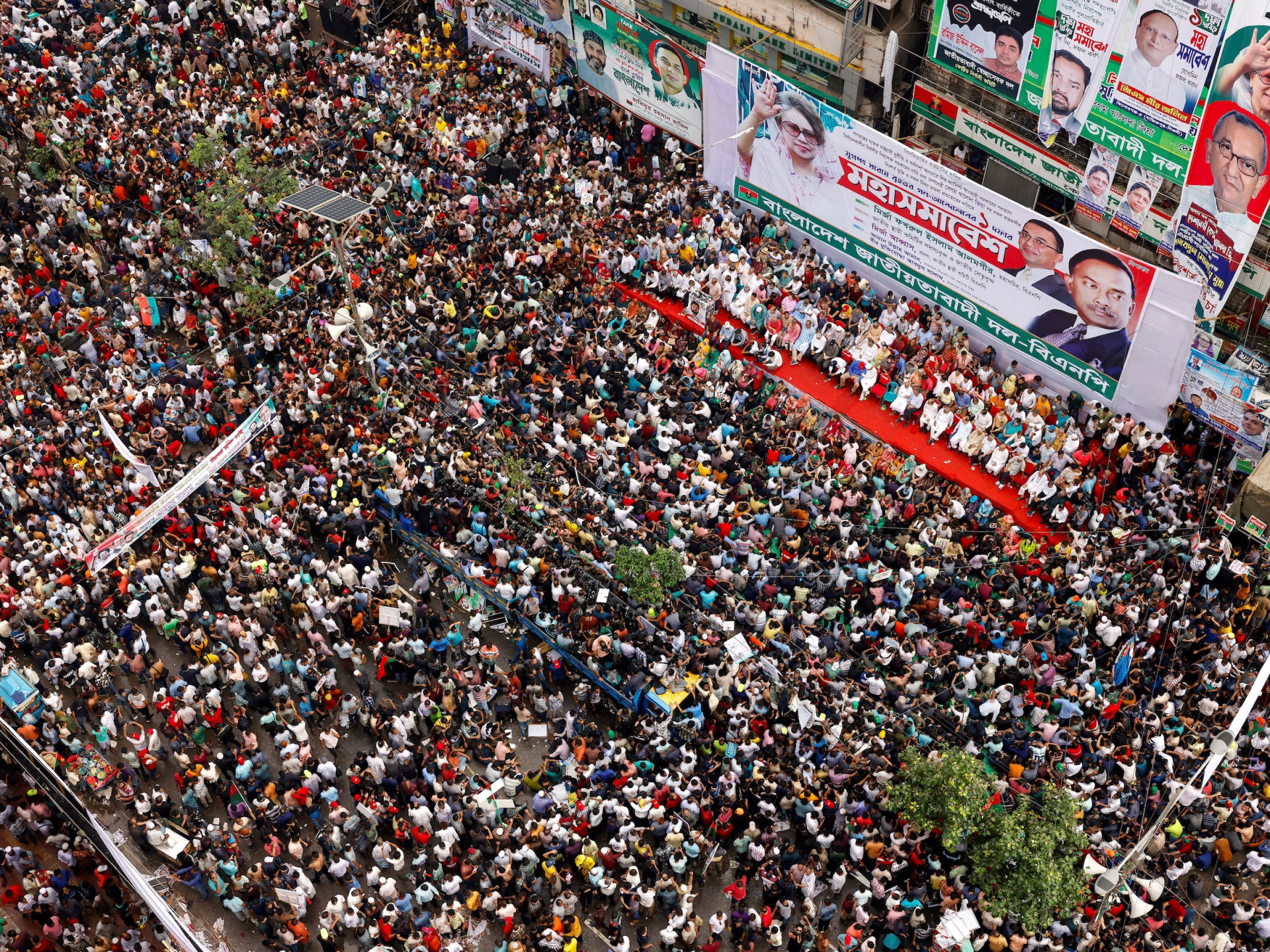Dhaka, Bangladesh – Thousands of opposition supporters rallied in the Bangladeshi capital Dhaka on Friday, demanding Prime Minister Sheikh Hasina step down and make way for a neutral caretaker administration to oversee a general election expected early next year.
Leaders and activists of the main opposition Bangladesh Nationalist Party (BNP) gathered at the protest site in Dhaka’s Naya Paltan area amid stringent security measures, with about 8,000 security personnel deployed.
About a kilometre (0.62 miles) from the protest site, supporters of the ruling Awami League (AL) party held what they called a “peace rally”. The protests ended peacefully.
Addressing the opposition rally, BNP Secretary General Mirza Fakhrul Islam Alamgir said the opposition movement has become a “sea of people”, adding that people “don’t want this government anymore”.

Alamgir reiterated his party’s demand for a caretaker government to oversee the elections, adding that there was no scope of “having any fair election under this government”.
The senior BNP leader, who has been leading the party after its founding leader and former Prime Minister Khaleda Zia was jailed in a corruption case, accused the ruling party of authoritarianism, failing to tackle inflation and subverting democratic institutions. The BNP says Zia’s conviction in 2018 was politically motivated.
“Every important institution of the country has been destroyed and people’s rights have been taken away. Price hikes of every essential have made people’s lives miserable,” he told the crowd of supporters.
The BNP has honed in on the cost of living crisis to galvanise supporters, drawing thousands of people to its rallies in the past few months.
Prime Minister Hasina has refused to resign and her Awami League party has said the demand for a caretaker government was unconstitutional. In 2011, the South Asian nation’s Supreme Court struck down the 15-year-old constitutional provision that allowed an incumbent government to transfer power to an unelected non-partisan caretaker administration to oversee a new parliamentary election.
Previous parliamentary elections in 1996, 2001 and 2008 took place under a caretaker government, which were considered free and fair by both local and foreign observers.
Reports of detentions
Several local media outlets reported that police detained dozens of people connected with the BNP in Aminbazar – an entrance point for the capital. Police rejected the allegations.
Uzzal Ahmed, a BNP activist from Gazipur district told Al Jazeera that he was lucky to have reached the rally. “I saw police detained some of our activists in Aminbazar after checking their mobile phones,” he told Al Jazeera.
Shahidul Islam, Additional Police Super of the Aminbazar area, said police were manning routine checkpoints.
“We didn’t detain anyone,” he told Al Jazeera.

In addition to BNP activists, many regular people joined the opposition rally.
Israfil Ali, a van driver from the central district of Narayanganj, said he believed corruption in the ruling party had damaged the economy.
“We are finding it very hard to afford the daily essentials. Besides, the power outages have made our lives very hard. We want the government to go and we want our voting rights back,” said Ali.
Hasina has dominated politics in the South Asian nation of 170 million people since she took power in 2009. But the last two elections – 2014 and 2019 – were marred by opposition boycotts and violence. Western nations, led by the United States, have been pressing Bangladesh on its human rights record and calling for free and fair elections.
In May, the United States warned it would impose visa curbs on Bangladeshis who attempt to undermine the voting process. In December 2021, Washington slapped sanctions against Bangladesh’s crime-fighting unit the Rapid Action Battalion (RAB) and some of its officials over alleged rights violations.
Journalist and researcher Rezaul Karim Rony said US sanctions had put pressure on Dhaka.
“Before the December 10 rally of last year, thousands of BNP activists and leaders were arrested. Police tried to obstruct that rally in many ways. But now, those intimidations have stopped up to a certain point because top police officials know that they will face a US visa ban for obstructing the democratic process,” said Rony, whose magazine Joban was shut down by the government.
Call for UN peacekeepers
On Thursday, 14 members of the US Congress wrote to their country’s ambassador to the United Nations, Linda Thomas-Greenfield, urging the UN to send a peacekeeping force to Bangladesh during the elections “to prevent intimidation, harassment or assault of voters”.
The letter said that the UN should participate in “supervising and conducting free and fair elections in Bangladesh”.
Between 2009 – when the Hasina government came to power – and June 2022, the Hong Kong-based Asian Human Rights Commission reported 2,658 extrajudicial killings and 619 enforced disappearances in Bangladesh.
Pointing to the US congresspeople’s latest letter, BNP leaders told the Friday rally that the current government must step down.
“The whole world is watching Hasina’s fascist regime. There is no scope for her to remain in power through another rigged election,” senior BNP leader Ruhul Kabir Rizvy told the BNP supporters in Naya Paltan.
Awami League leader Obaidul Quader accused the BNP of spending money on lobbyists.
“They [BNP] wrote letters to the United Nations and the US ambassador through some lobbyists. They want to come to power riding on the shoulders of foreign entities. How audacious they are?” he told his party supporters at the rally on Friday.


